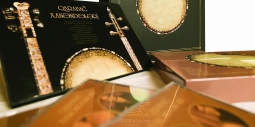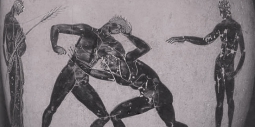The Garabagh mugham school
Accepted as an integral part of our nation’s fundamental cultural values, the Azerbaijani mugham was, in 2002, included by UNESCO in the List of Masterpieces of Mankind’s Verbal and Intangible Heritage.
With centuries-old history, the Azerbaijani mugham has, according to experts’ opinion, lived its flourishing period at the time of Eastern Renaissance. Following periods could not at all change the essence and meaning of this art. Today the mugham is living as a spiritual wealth of the past, on the one hand, and as an extremely modern world of art, on the other. Here, the norms of art strictly defined as a tradition and the opportunities of improvisation in the process of activity harmonize in striking unity.
Mugham is a kind of music formed on the rich philosophical and literary ground. And a performer of mugham plays the role of a transferor of this ancient ceremony of magic from generations to generations. In doing so, he gives people a chance to think about eternal truths and find a spiritual peace. First roots of the nation’s cultural and spiritual heritage have always remained the biggest secret as a creative start. No theory is capable of delivering the most delicate tinges of this creation as it used to be. Only mugham performers are capable of reviving this art with their performances, feeling that secret by apprehension.
The Azerbaijani classical poetry is rich in bright ideas and images. Only those who have read and profoundly mastered the Eastern philosophy know the language of this full of hints poetry, and context of ghazals (a kind of eastern poem).
The aptitude of understanding and feeling the miracle of ghazals used in mughams are formed in mugham performers since the years of childhood. None of the mugham performers can exactly tell you how many ghazals of individual poets he knew by heart. However, if there is a necessity to deliver any idea associated with various subjects, they perform extempore hemistiches of ghazals in their memory.
Mugham has always been the source of inspiration for Azerbaijani composers and will always remain as such. Symphonic mughams created on the basis of classic mughams have had success both in the Orient, and also in the West. The world of mugham opens wide opportunities for contemporary composers in terms of creative quests and interpretations.
Both mughams in solo performance and also instrumental mughams have widely spread in Azerbaijan. The solo performance is the peak of an instrumental mugham. In Azerbaijan, mugham singers are traditionally called as khanende. Composition of a group with national instruments accompanying the performance of khanende may be different, from a trio comprised of tar, kamancha and daf (tambourine) to a whole orchestra.
There are a number of well-known schools of mugham performers. Although mugham has spread throughout the country, Baku, Shamakhy, Ganja, Nakhchyvan and Shusha are considered to be the main hotbed of mugham as centres for creation of mugham with their own independent schools. The Garabagh Mugham School, which arouses a special interest, has been formed in Shusha.
The fact that performers were born just in Garabagh soil has in good time defined their destiny. Garabagh, either upland or lowland, was indeed an ideal place for anyone with a good voice. As citizens of these places were those people that not only sang any popular song, but also could appreciate the music and raise the masters of mugham to fame.
They say the mugham gives richness to a human soul, tunes him up to the most pure and sincere feelings. In Garabagh, this occurs between the nature and a human being: the richness needed for souls is first given by the nature. Therefore, souls in these places are extremely sensible to beauty, including music.
Representatives of the Garabagh Mugham School have nobly influenced their countrymen’s thinking, feeling and senses, by developing the Azerbaijani nation’s musical culture. It is that beauty, which has come through the nature of these places that has found its reflection in the unique musical culture. The famous “Garabagh Shikastasi”, which has become a symbol of the Garabagh Mugham School, is an obvious example to this.
Majority of the Garabagh singers was born in Shusha. The subject of Shusha, an unconquerable fortress and spiritual fortification, the image of Shusha in the Azerbaijani culture as a sacred temple, is an eternal leitmotif passing through their whole activity as a golden line.
The history of Shusha is known to the people of Shusha not only from various chronicles related to Shusha, but also from “Garabaghname”s - the collection of scientific works devoted to the history, music, literature, architecture and culture of Garabagh, which is an integral part of yesterday and today. In this collection, historical truth and realities of yesterday and today form a single harmony. Ancient history and mysterious nature of these places has turned Garabagh into the main subject of mugham.
Shusha has given many musicians to the world. Part of them received a pseudonym of Shushaly. And this reminds Sergey Yesenin’s well known saying: “If not a poet, then not from Shiraz, if not a musician, then not from Shusha”. Shusha has given to the world so many talented singers, composers and music experts that a special encyclopaedia may be created on their mastery using information about them.
The climate of this town, a cradle of culture, has found its reflection in the “Trip to Caucasus” by famous writer Alexander Dumas. The book tells about the beauty of these places, hospitality of Azerbaijani people, Garabagh khanate, well-known poetess of that period Natavan etc.
Shusha has always been called the conservatory of the Orient. Musicians-amateurs used to come here from everywhere to listen to famous singers or receive lessons of performance. But this town has gained fame not only due to its musicians. Magnificent natural world, the purest springs have made these places more famous. The Isa Bulaghy (the spring of Isa), the most famous spring of this place, was considered by many people as the symbol of Shusha.
Mountains, as if rising to the sky, have encircled an extremely beautiful plateau here and created an open hall unmatched by its acoustics. No better place may be found to sound music. Encircled by mountains as a precious stone and called as Jydyr plain, this plateau has seen well-know singers, and listened to their sweet voices.
Naughty children of Shusha used to come to this magnificent corner of the nature as they had a chance and not refrain from “fretfulness”. Ringing voices of children, who had just mastered the primer of the mugham mastery, spread always from various passes, heights on Shusha, echoed on steep rocks and valleys and, having united, joined in a single stream. Such an invisible polyphony accompanied by the murmur of springs, whisperings of leaves and warble of birds could only be created by a child’s imagination.
Shusha was so famous just for its mugham ceremonies that, as a result, it turned into a unique place in the Caucasus in terms of musical culture. “In Shusha children cry on “Segah” and smile on “Shahnaz” and such other sayings that have entered the peoples’ language are telling about the mugham’s essential role in the life of the Azerbaijani people. It could not have been otherwise. As everyone born into this world became a participant of literary and musical festivities from the childhood, regardless of the level of development and social condition.
Writer Abdulrahim bey Hagverdiyev said if you had met in the second half of XIX century musicians in Baku, Shamakhy, Ashgabat, Tehran or Istanbul, you would definitely have seen among them one from Shusha.
In XX century, the Garabagh music school gave many well-known musicians to the world. Music festivals and contests held in Garabagh have stimulated discovery of new talents and their development, and created conditions for the promotion of mugham throughout the world. “Khary bulbul” all-USSR music festival held in 1987 in Shusha may be brought as an example. Khary bulbul is the name of a rare flower growing in these places.
Unfortunately, the conflict incited as a result of unfair territorial claims brought against Azerbaijan, the occupation by Armenian invaders of Garabagh and surrounding districts including Shusha, which was considered to be the cultural centre of Garabagh, have turned the bright representatives of the mugham art into internally displaced people. The conflict caused destruction of cultural, historical and architectural monuments created here for centuries. Nevertheless, Garabagh bulbuls are still going on singing. However, grief, sorrow and melancholy is being felt today in their performance.
In the project “Singers of Garabagh” of the Heydar Aliyev Foundation, recordings of 24 representatives of the Garabagh Mugham School, which has played a special role in the development of our people’s music culture, are presented to listeners. These recordings relate to different years.
The world becomes globalized. Very rapid changes occur in this globalized world. We all together have to create the grounds for our future development. And innovations should be closely tied with traditions. Just relying on the tradition’s power of impact, we should, by preserving every nation’s cultural archetypes, build such a world, in which it would be possible to preserve and develop these traditions, allowing them to live.
UNESCO’s Convention on preservation of verbal and intangible heritage serves just these objectives.






